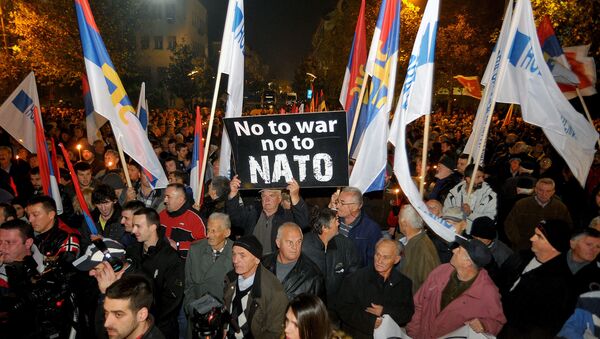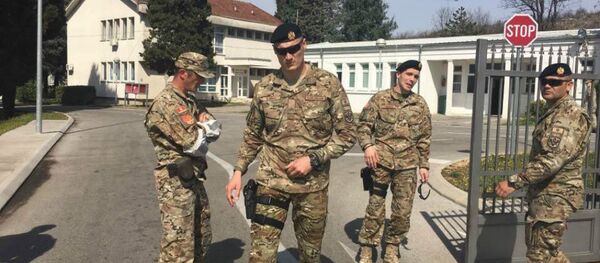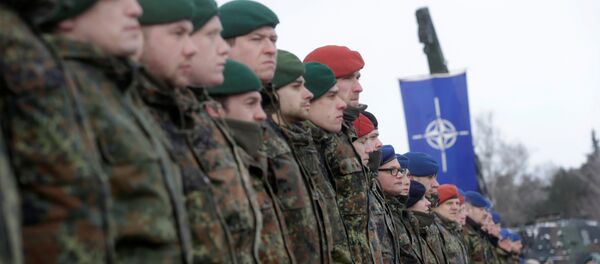NATO's 1999 bombing of Yugoslavia is still fresh in the memory of Montenegrins, who remain implacably opposed to membership in the alliance, editor-in-chief of the IN4C information portal Gojko Raicevic told Radio Sputnik.
"The Montenegrin government wants to join NATO, the people of Montenegro aren't keen whatsoever to be a part of that criminal organization. This has been proven for years and years by protests and demonstrations, you name it," Raicevic said.
Montenegrins have "very fresh memories of NATO bombing our cities, killing our citizens and destroying our economy in 1999 when Montenegro was part of Yugoslavia."
In addition, most citizens are opposed to NATO membership because it contradicts the country's traditional ties with Russia and Serbia.
"The general opinion in Montenegro and Serbia is that Serbs, Russians and Montenegrins have one faith and they are actually one nation."
Finally, Montenegrins are opposed because of the values that NATO represents, Raicevic said.
"Another reason is civilization values. No-one who holds the key civilization values would want to be a part of that criminal organization."
Djukanovic, one of the country's richest individuals, started to pursue a course of integration with the EU and NATO after disassociating himself from his former ally in the League of Communists of Yugoslavia, Slobodan Milosevic.
"Milo Djukanovic, who is not President or Prime Minister of Montenegro any more but remains chief of his party, is pulling the main strings in this story," Raicevic said.
"We have to remind our listeners that in the early 90s he was an ally of Slobodan Milosevic, and he changed his approach after he was blackmailed by Brussels and Washington over war crimes, that he was going to be tried in The Hague tribunal for war atrocities unless he becomes a good pupil and listens to what the teachers from Brussels and Washington tell him."
"One of the tasks given him by Brussels was to separate the country from Serbia and then he recognized the criminal state of Kosovo and then he imposed sanctions on Russia. So, he was doing all the aims being given him by the two capitals and the only one left is Montenegro becoming party of NATO."
"The disappointment came a month ago when he didn't fulfil the (promised) immigration policy, Obamacare. Then, he said he's not going to spread NATO further but then the other day he signed Montenegro's accession document."
"After ordering the bombing of the airbase in Syria, we realized he was something different from what we'd hoped we were going to have: a partner in making the world a better place to live."
On Tuesday, US President Donald Trump signed the US ratification of Montenegro's NATO accession protocol into force, following its approval by the US Senate last month.
Now that the US has ratified the protocol, Spain and the Netherlands are the only remaining member states which haven't yet approved the move.
In Montenegro itself, thousands of citizens have demonstrated against the government's plans to join the military alliance that bombed the country in 1999.
Despite that, the government has rejected calls for a referendum on the matter from opposition parties such as the Democratic Front coalition.
A survey of public opinion by the market research firm IPSOS, carried out before the country was invited to the alliance in 2015, found that 57 percent of Montenegrins were opposed to NATO membership and 84 percent were in favor of holding a referendum, the Montenegrin newspaper Dan reported.







